JOSHUA’S FAREWELL, JESUS CLAIMS DEITY, WHOSE SON IS HE?
OLD TESTAMENT READING – Joshua 22:21- 23:16
Joshua lives to be 110. His last words consist of a challenge to the leaders (Chapter 23) and a renewal of the covenant before all the tribes of Israel at Shechem (Chapter 24).
First, Joshua calls the leaders to remember what they have seen and heard. He exhorts them to stay faithful to God, drive out the enemy and fully possess their allotted inheritance.
He reminds them that God had been faithful to give them what He had promised to the degree that they were ready to follow His instructions to drive out the enemy. However, there was still land to be possessed. A failure to drive out the enemy would create many problems for generations to come.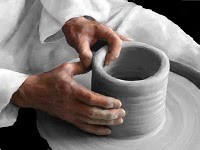
The Lord knows what He has allotted to us. We might prematurely think our work is done. We are His workmanship, “created in Christ Jesus to do good works, which He prepared in advance for us to do” (Ephesians 2:10). We must maintain close fellowship with Him, or we be deceived and fall short of fulfilling His choice purposes for our lives.
We do not want to be distracted from fulfilling His will of command. Therefore, in the light of Christ being the fulfillment of the Law, we need to take Joshua’s words to heart:
Joshua 23:6 “Be very strong; be careful to obey all that is written in the Book of the Law of Moses, without turning aside to the right or to the left.
God’s grace is evident in the way His sovereign purpose is achieved even if we are unfaithful to His choice purposes. However, our disobedience will grieve the Holy Spirit and bring forth damaging consequences.
Joshua strongly warns the leaders to maintain pure devotion to the Lord and not mix with the corrupted nations that remain among them.
Joshua 23:7 Do not associate with these nations that remain among you; do not invoke the names of their gods or swear by them. You must not serve them or bow down to them.
We would do well to remember the great deliverance we have already experienced because the Lord has been fighting for us (23:9-10).
The Apostle Paul echoes this in the New Testament:
“He has delivered us from such a deadly peril, and he will deliver us. On him we have set our hope that he will continue to deliver us, [11] as you help us by your prayers.” (1 Corinthians 1:10-11)
Let us pray that we will not stop short of fulfilling God’s choice purposes for our lives in thoroughly driving out the enemy and possessing our inheritance in Christ. Let us pray for our brothers and sisters that they will press on in obedience to the Great Commission, trusting that the Lord will go with them to win each battle according to His promise.
Joshua points out the danger of making friends with those who are not faithful to the Lord.
“But if you turn away and ally yourselves with the survivors of these nations that remain among you and if you intermarry with them and associate with them, [13] then you may be sure that the Lord your God will no longer drive out these nations before you. Instead, they will become snares and traps for you, whips on your backs and thorns in your eyes, until you perish from this good land, which the Lord your God has given you.”
Joshua tells it like it is. There are relationships that will become:
- Snares (bird trap)– YOU ARE NAIVELY ATTRACTED AND CAUGHT UNAWARES. You are enmeshed in a corrupting relationship. ‘
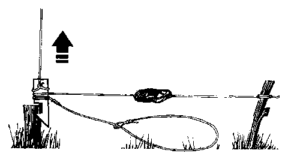
- Traps- YOUR ATTITUDE CHANGES; YOUR RESISTANCE TO ERROR AND EVIL WEAKENS; YOU ARE IN A BONDAGE from which you cannot break free
- Thorns in your eyes (THEY WOUND and BLIND). You don’t see the branch coming at you until it hits you.
Paul puts it this way in 1 Cor. 15:33:
Do not be misled: “Bad company corrupts good character.”
Joshua had a strong influence among his contemporary peers and used it for good. Sadly, the baton of godly leadership does not get passed to the next generation.
Judges 2:6-7 After Joshua had dismissed the Israelites, they went to take possession of the land, each to his own inheritance. [7] The people served the Lord throughout the lifetime of Joshua and of the elders who outlived him and who had seen all the great things the Lord had done for Israel.
Judges 2:10 After that whole generation had been gathered to their fathers, another generation grew up, who knew neither the Lord nor what he had done for Israel.
We can learn from this. While Moses was faithfully grooming Joshua for leadership, Joshua did not bring anyone alongside who could be learning from his example.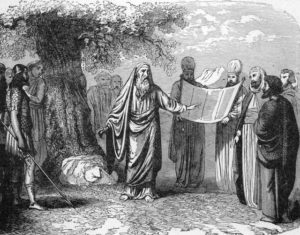
Contrast Joshua’s exhortations with those of the Apostle Paul.
2 Timothy 2:1-2 You then, my son, be strong in the grace that is in Christ Jesus. [2] And the things you have heard me say in the presence of many witnesses entrust to reliable men who will also be qualified to teach others.
Joshua exhorts the Israelites to love the Lord and love His Word. Temptations were in their backyard. Those living nearby had snares, traps, whips, and thorns designed to destroy them.
Campbell Morgan writes, “To cease to discipline the life, is to cool in devotion.”
Jude, the half-brother of Jesus, explains, ‘But you, dear friends, build yourselves up in your most holy faith and pray in the Holy Spirit. [21] Keep yourselves in God’s love as you wait for the mercy of our Lord Jesus Christ to bring you to eternal life.” (Jude 1:20-21)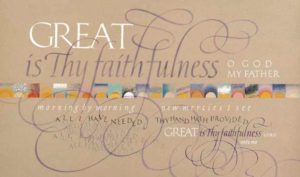
Joshua concludes by reminding the people that God’s promises are trust-worthy. The promises contain good words (blessings for the obedient) and words that warn of judgment (punishment upon the disobedient). When we remember the faithfulness of the Lord to what He has promised, let us take comfort in the promised reward to the One who fulfills the Law on our behalf and be sobered by the reality of promised judgment upon those who reject His Word (John 3:18, 36)
NEW TESTAMENT READING: Luke 20:27-47
Now the Sadducees join Jesus’ inquisitors. The Sadducees only honored the Pentateuch (the five books of Moses- Genesis, Exodus, Leviticus, Numbers, Deuteronomy.) Because there was no mention of a bodily resurrection of the dead in those books, they refused to believe in the resurrection and made light of the afterlife, as is evident in their hypothesis “One Bride for 7 Brothers”.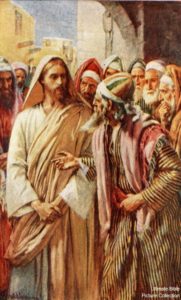
In their past debates with the Pharisees, who believed in the resurrection, the Sadducees would ask this question for which they had yet to receive a satisfactory answer. Now they took the question to Jesus. If a man’s brother dies without a child, according to the law of a levirate marriage in Deuteronomy 25:5-10, a single brother is to marry the widow. If he dies and the woman has yet to conceive a child and raise up an heir, he is to marry the next brother. What if one by one the brothers die, leaving her a childless widow? (By this time, one should be suspicious.) When she dies, which one of the seven brothers will be her husband in the resurrection?
The assumptions of the Sadducees demonstrated that they limited the power of God and did not know the Scriptures well enough to discern truths about the resurrection (Matt 22:29).
Jesus corrects the Sadducees’ theology by pointing out evidence of the resurrection from the Pentateuch. The Sadducees did not believe in angels, spirits or the resurrection of the dead (Acts 23:8). In his reply, Jesus refers to the real existence of all of these.
Jesus answers first by informing them that those who are considered worthy of being resurrected and participating in the future kingdom age, in a similar manner to the angels, have bodies that die no more. Neither do they marry, nor are they given in marriage. Therefore, the question is irrelevant (Luke 20:34-36).
Jesus refers to a Book of the Bible the Sadducees professed to believe in- the Book of Exodus. He reminds them of the incident in which the Lord calls Moses from the burning bush, saying, “I am the God of your father, the God of Abraham, the God of Isaac and the God of Jacob.” (Exodus 3:6)
Jesus affirms that the One who called Moses is not the God of the dead but of the living, inferring that Abraham, Isaac, and Jacob at that time were living unto Him. There must be in existence a real world for the departed, or Moses would not have written these words. And the promises given to these patriarchs are not going to be fully experienced in their disembodied spirits. The promises anticipate their bodily resurrection.
Once the Holy Spirit opens our eyes to the power of God and the Scriptures, we can recognize the testimony of Jesus in many Old Testament accounts. We can see the resurrection prefigured in Aaron’s rod that budded, incidents that take place on the third day, and Abraham receiving his son, as it were, back from the dead.
Resurrection is a demonstration of the power of God. It is not a reconstruction or resuscitation of the old body, but it is the miraculous granting of a new body that has continuity with the old body. Yet that new body bears a difference, even as the planted seed has one body and its fruit and its flower another. (1 COR 15:35-50). When Jesus rose from the dead, he had a body that was similar, yet different, from the body that suffered death. This resurrection body would die no more. This body was a new creation. Jesus was recognized by those who knew Him, yet He could walk through closed doors, change His appearance, and vanish suddenly.
At this point, Luke tells us that Jesus’ examiners no longer had the courage to ask him more questions (Luke 20:40). But Jesus did not let them off the hook. He asked them the all-important question:
Matthew records it this way:
“What do you think about the Christ, whose son is He?” They said to Him, “The son of David.” (Matthew 22:42)
Luke picks up the conversation here:
[41] “How is it that they say the Christ is the Son of David? [42] David himself declares in the Book of Psalms:
” ‘The Lord said to my Lord:
“Sit at my right hand
[43] until I make your enemies
a footstool for your feet.” ‘
[44] David calls him ‘Lord.’ How then can he be his son?”
“What do you think about the Christ?” Jesus makes it clear that the Messiah is more than the Son of David, for then David would not call his offspring ‘Lord’. The only explanation is that the Christ is both man and God. As the eternal God, the Messiah is David’s Lord. As man, He is David’s son.
When Jesus entered into the city, the people already acclaimed Jesus as the Son of David (Matt 21:9; Mark 11:10), and Jesus did not rebuke them for giving Him this Messianic title. Now Jesus was making clear the nature of the Messiah as the Son of God.
Because the teachers were not willing to accept Jesus as the God-man, the Messiah, he said to his disciples in the hearing of all the people,
“Beware of the teachers of the law. They like to walk around in flowing robes and love to be greeted in the marketplaces and have the most important seats in the synagogues and the places of honor at banquets. They devour widows’ houses and for a show make lengthy prayers. Such men will be punished most severely.” (Luke 20:45-47, NIV)
READING IN PSALMS: Psalm 89:14-37
This psalm by Ethan the Ezrahite celebrates the Davidic Kingship, ultimately pointing to the Kingship of the Greater David, Jesus Christ.
We read yesterday of praise coming forth from the psalmist (v. 1-4) from the heavens (v.5-8) and on earth (v.9-13).
Praise also comes forth from the people of Israel (v.14-18). They are blessed because of the redemption they have found through the Holiest of All.
Psalm 89:15
How blessed are the people who know the joyful sound!
O Lord, they walk in the light of Your countenance.
I often think of the bells on the garments of the High Priest ringing when he is moving in the Holiest of All. He is alive, and therefore His offering on our behalf is good.
How blessed we are to know that our Savior lives!
Verses 19-37 refer to the Davidic covenant but speaks to us of the Greater David, Jesus Christ.
Proverbs 13:17-19
The writer of Proverbs reminds us of the importance of being faithful and reliable as Christ’s disciple (Prov 13:17). Discipleship involves discipline. Discipline in being faithful to Christ brings success (13:18). Fools do not see the good of turning away from evil, but the fulfillment of godly desire is sweet to the soul (13:19).
A wicked messenger falls into adversity,
But a faithful envoy brings healing.
[18] Poverty and shame will come to him who neglects discipline,
But he who regards reproof will be honored.
[19] Desire realized is sweet to the soul,
But it is an abomination to fools to turn away from evil.
PRAY FOR THE NATIONS (pp. 256-258 of the Prayer Guide, OPERATION WORLD, available at www.operationworld.org
Macau, China
A tiny peninsula and two islands 64 km west of Hong Kong on the coast of Guangdong Province of China.
Population: 547,591 Annual Growth: 2.35%
Capital: Macau
Urbanites: 100%
Official language: Chinese and Portuguese. The majority (86%) speak Cantonese, but Mandarin is also widely spoken
Answer to Prayer
There is increasing growth and unity in the Church. Although not blessed with the long legacy of a strong Church, as in Hong Kong, or the spectacular growth of the mainland, numbers in both Chinese- and foreign-speaking congregations are growing. The Union of Christian Evangelical Churches in Macau sees the various evangelical groups draw together more than ever before in recent years.
Challenge for Prayer
Macau has the dubious distinction of being the first Christian territory in Asia to become non-Christian. In 1600, 95% of Macau’s population were Catholic. By 2010, this had reduced to about 3.1%, a monumental decline. Protestant churches, while growing, have always been small. The number of Protestant churches grew from 33 in 1986 to more than 70 Chinese-speaking churches and more than 20 in other languages. Pray for believing Christians to win back this territory for the Savior.
Macau is one of the least-discipled Chinese communities in the world. The major hindrances to evangelism and breakthrough are the strength of the gambling industry, the social cohesion of Chinese culture, Buddhist/Daoist beliefs, and fear of offending A-Ma, the local god after which the city was named. The church is small, weakened by emigration and a high turnover of leadership. Pray for local leaders to be raised up who will help the church survive and grow and be a blessing to China and the world. The Macau Bible Institute was the first theological school; there are several other practical ministry training programs in place as well.
PRAYER: Lord, You have been faithful to all generations. We thank You for revealing Your Son to us and giving us the knowledge of Your glory in His perfections. We pray that You will help us establish good relationships that will spur us on to love and good works. Encourage us to help others in their pursuit of all that You are and all that You have freely given to us in Christ. And we ask this in His Name. Amen,
Pastor David
So, naturally, we proclaim Christ! We warn everyone we meet, and we teach everyone we can, all that we know about him, so that, if possible, we may bring every man up to his full maturity in Christ. (Colossians 1:28, J.B. Phillips paraphrase)
New Life Community Church,
221 Baker Ave, Concord MA 01742

